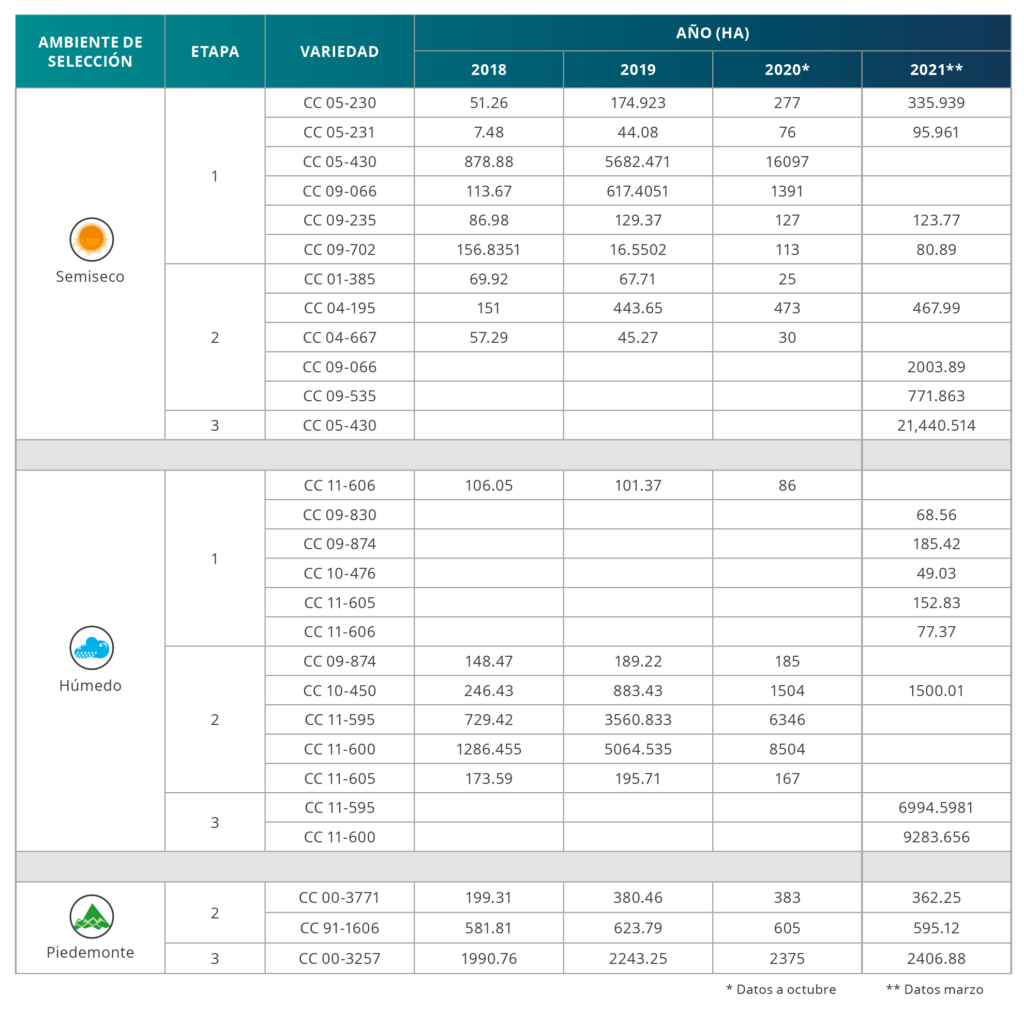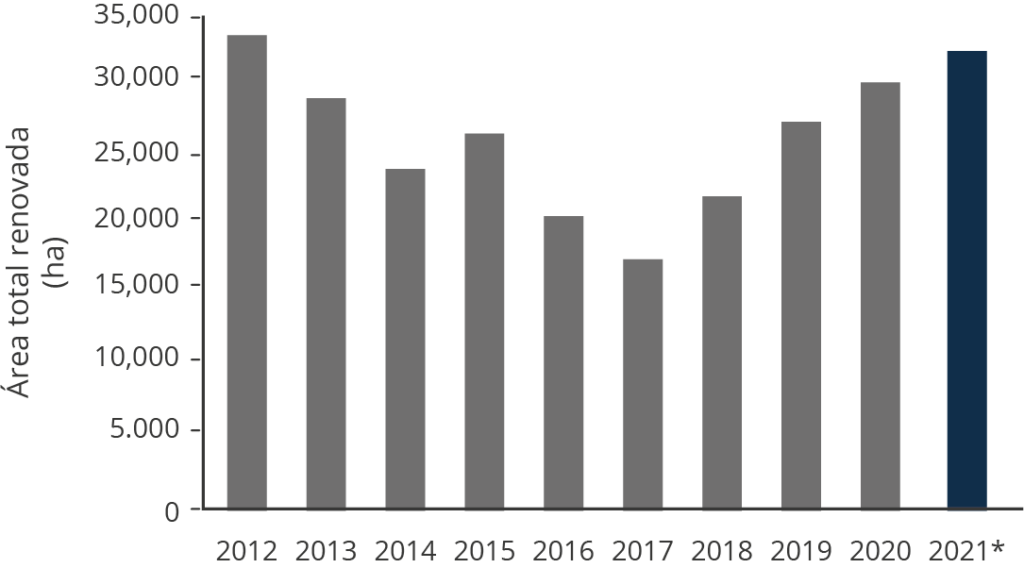As part of the Strategy of Adoption and Multiplication of Varieties, in which the outstanding varieties in the regional tests are evaluated by stages, during 2020 an increase was observed in the semi-dry areas sown with CC 05-430 and CC 09-066 (stage 1) and CC 04-195 (stage 2 ).
In the humid environment, an increase in the area was observed with the varieties CC 11-600, CC 11-595 and CC 10-450 (stage 2), while in the piedmont it was observed that the varieties CC 00-3771, CC 91-1606 and CC 00- 3257 (stages 2 and 3) are sustained in the planted areas (Table 1).
Table 1. Adoption of new varieties in stages 1 and 2 for the three selection environments between 2018 and 2020 (data as of October) and 2021 (data as of March).

In 2020, 30,711 hectares were renovated, of which 51% correspond to the direct management area of the mills and 49% to the suppliers area. The main varieties sown in 2020 were CC 05-430, CC 11-600, CC 09-066, CC 11-595, CC 10-450 and CC 11- 678.
The area renovated in 2020 was 11% higher than that renovated in 2019 (27,730 ha) (Figure 1).
Figure 1. Historic area renewed in the agro-industry.

For the year 2021, an area of 32,808 hectares was estimated for renovation (49% in supplier areas). This information is the basis for identifying potential users by variety / environment and defining the marketing strategies aimed at achieving a correct location for the new varieties.
This behavior in the adoption of new varieties is the result of the strategies promoted by Cenicaña, with the support of mills and growers.
One of the strategies is based on technical support to mills and growers in their renovation processes. In 2020, the renovation of 1182 hectares was accompanied. Learn here about the experience of accompanying the renovation process at the El Reflejo ranch.












